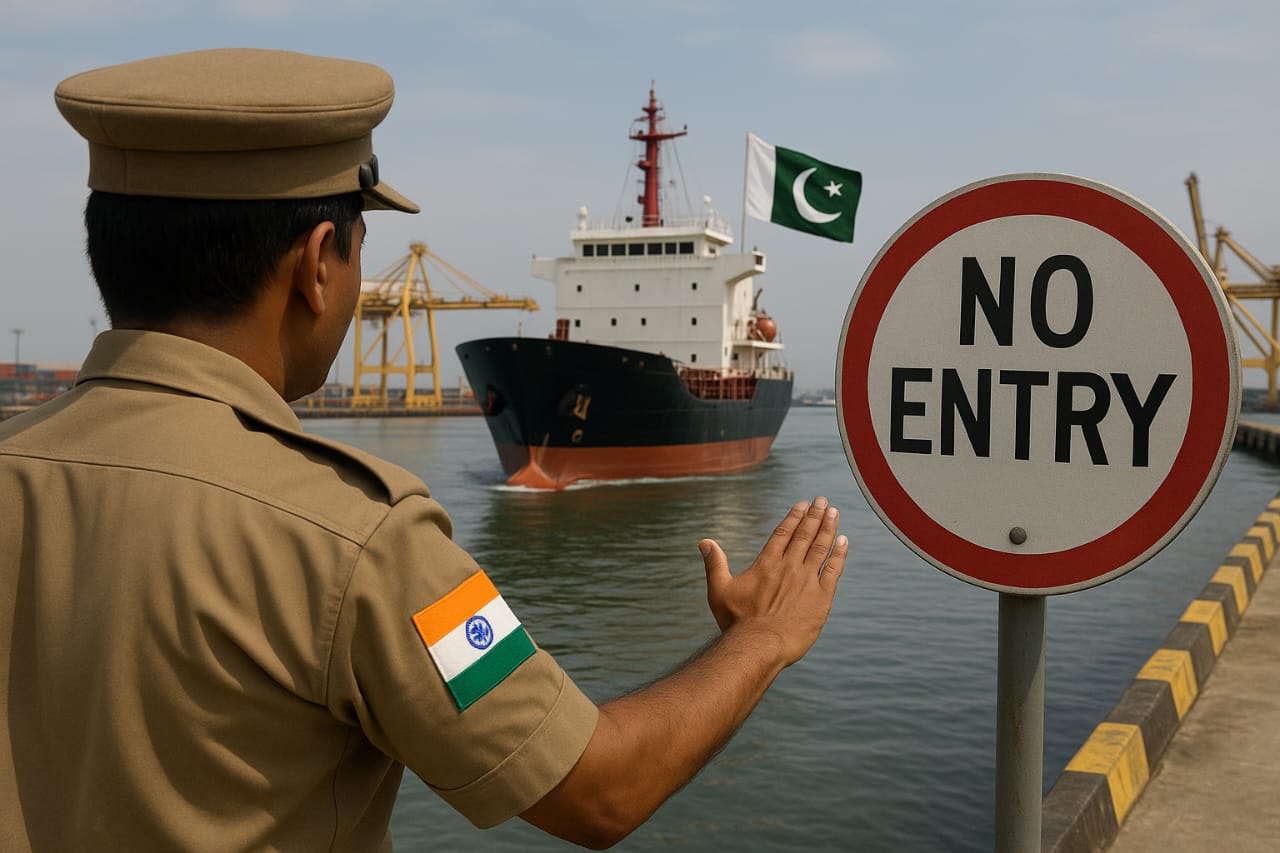In a consequential escalation of tensions between India and Pakistan, the Indian government has implemented a directive that prohibits ships flying the Pakistani flag from docking at Indian ports. This order, effective May 2, 2025, also prohibits Indian vessels from visiting ports in Pakistan, signaling a marked intensification in the strained relations between the two nations.
This directive has its roots in national security concerns raised by the Indian Ministry of Ports, Shipping and Waterways in the wake of a tragic terror attack in Pahalgam on April 22, 2025, which resulted in the deaths of 26 people. The attack has been attributed to terrorist groups with ties to Pakistan, prompting New Delhi to take stringent measures, including a prior restriction on the use of Indian airspace by Pakistani airlines.
The maritime ban is grounded in the Merchant Shipping Act of 1958 and is a protective measure aimed at safeguarding India’s maritime interests. In addition to barring Pakistani vessels from docking, the restrictions extend to foreign ships that transport goods or passengers to or from Pakistani ports, thereby further isolating Pakistan from key maritime routes.
This recent decision is viewed against the backdrop of escalating retaliatory actions from both nations. Just days before the maritime ban, on April 30, India had already prohibited Pakistani airlines from using its airspace, a decision that fueled the diplomatic discord. Pakistan has flatly denied any involvement in the Pahalgam attack and has retaliated by halting all trade with India, including indirect trade through third countries such as the UAE.
The economic ramifications of these developments could be profound, particularly for Pakistan, which is estimated to conduct around $10 billion annually in informal trade with India, much of it facilitated through third nations. The ban is likely to hit Pakistan’s pharmaceutical sector hard, which relies significantly on imports from India, and may also disrupt the local economies surrounding India’s Integrated Check Posts (ICPs).
Trade experts warn that these disruptions could further exacerbate Pakistan’s economic challenges, as both countries grapple with regional economic difficulties. Legal analysts like Shantanu Singh predict that the ongoing clash will limit opportunities for trade and cooperation moving forward.
International calls for dialogue and de-escalation have emerged, including appeals from UN Secretary-General Antonio Guterres. However, both India and Pakistan seem entrenched in their respective positions. India has suspended its involvement in the Indus River water-sharing agreement, while Pakistan has expelled Indian diplomats, deepening the diplomatic rift.
This latest ban on maritime trade underscores the increasingly contentious nature of India-Pakistan relations, with maritime routes now added to the list of critical issues dividing the two nations. As the situation evolves, the Indian government appears resolute in prioritizing national security and regional stability over the possibility of immediate diplomatic reconciliation.







